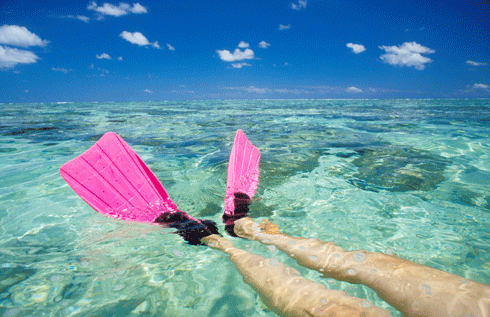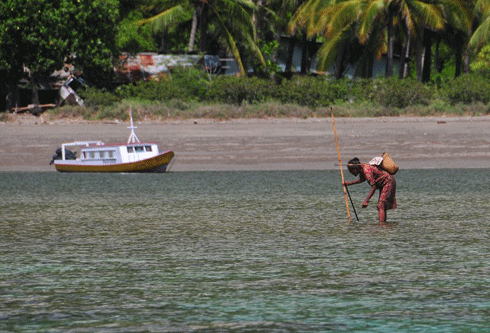
|
Published: 11 February 2013
Supporting tourism and nature all in a day’s work
Research based at the Great Barrier Reef shows that nature-based tourism operators not only strengthen the resilience of the local tourist industry, but also contribute to conservation.
The world-renowned Great Barrier Reef is one of Australia’s most spectacular natural attractions. Tourism associated with the Reef contributes AU$5.8 Billion to the Australian economy per annum and sustains 55,000 jobs.
Yet, parts of the Reef – like other reefs worldwide – are under threat from climate change, over-fishing, and land-based pollutants from agriculture and development.
As a result, there is concern over the future of the Reef’s tourism sector, and the communities that depend on it. Reef tourism is not only under threat from the degradation of coral reefs but from a range of other socio-economic and political disturbances – basically, anything that negatively affects the number of tourists travelling to the area.
For example, the terrorist attacks in the USA in 2001, and the Asian SARS (severe acute respiratory syndrome) outbreak in 2003, all negatively impacted on tourism to the Reef.
More recently, the financial crisis of 2008 and the ongoing global recession, coupled with a strong Australian dollar, have spelt tough times for the Reef tourism industry.
These tough times in this specialist nature-based tourism sector should be of concern to conservationists. Tourism companies operating within the Great Barrier Reef play an important role in local conservation activities – for example, in helping monitor crown-of-thorns-starfish outbreaks over the past decade. In addition, a vibrant economy based on reef tourism means that broader society and government are more likely to fund and support actions to conserve reefs.
As the Great Barrier Reef generally lies some distance – more than 20 kilometres – offshore, companies who take visitors to dive and snorkel on reefs are critical to a healthy reef tourism system.
Working with Natalie Ban, and Michael Hall, I recently explored the relationship between the lifestyle values of nature-based tourism enterprises, their resilience, and their support of and contribution to conservation of Australia’s Great Barrier Reef (Biggs et al. 2012). The research involved semi-structured interviews with the owners and senior managers of 48 reef tourism enterprises.
We showed that the lifestyle values of reef tourism company owners and senior staff not only strengthens the resilience of reef tourism companies, but is also associated with greater company support of, and participation in, conservation activities. Lifestyle values refer to the motives that entice owners and staff of tourism enterprises to live and work in a chosen natural attraction.
In other words, companies whose staff are motivated to live and work on the Reef because of their love for the reefs and associated natural environment are more likely to survive slumps in tourism, and are more likely to support, and participate in reef conservation activities.
The lifestyle values of company managers and key staff therefore form a nexus between resilient reef tourism companies and reef conservation.
We believe that this relationship is probably not unique to reef tourism, and that it applies to nature-based tourism all around the world from African savannas to Indian jungles. Nature-based tourism operators, motivated by lifestyle values and a desire to contribute to conservation of the environment, play an important role in local economies and conservation efforts. Partnerships and synergies between conservation and other sectors are critical to stem the tide of biodiversity loss.
Nature-based tourism enterprises whose owners and staff are motivated by lifestyle values are potentially valuable partners for conservation because of their conservation ethic. Conservation agencies can strengthen the opportunities for nature-based tourism enterprises to contribute to conservation by:
-
generating awareness and creating opportunities for enterprises to support and participate in conservation action
-
actively supporting the development of infrastructure and policies that enable enterprise support of conservation; and
-
working in partnership with enterprises to reduce regulatory and other barriers that directly or indirectly hamper the ability and motivation for lifestyle-driven enterprises to contribute to conservation.
Conservation agencies should grasp the opportunity that the nexus of lifestyle values and conservation presents to ensure that nature-based tourism’s contribution to conservation is maximised.
Duan Biggs carried out this research as part of his PhD at the ARC Centre of Excellence for Coral Reef Studies. This article first appeared in Decision Point and is republished with permission.
More information
Biggs D, NC Ban & CM Hall (2012) Lifestyle values, resilience, and nature-based tourism’s contribution to conservation on Australia’s Great Barrier Reef. Environmental Conservation doi:10.1017/S0376892912000239







